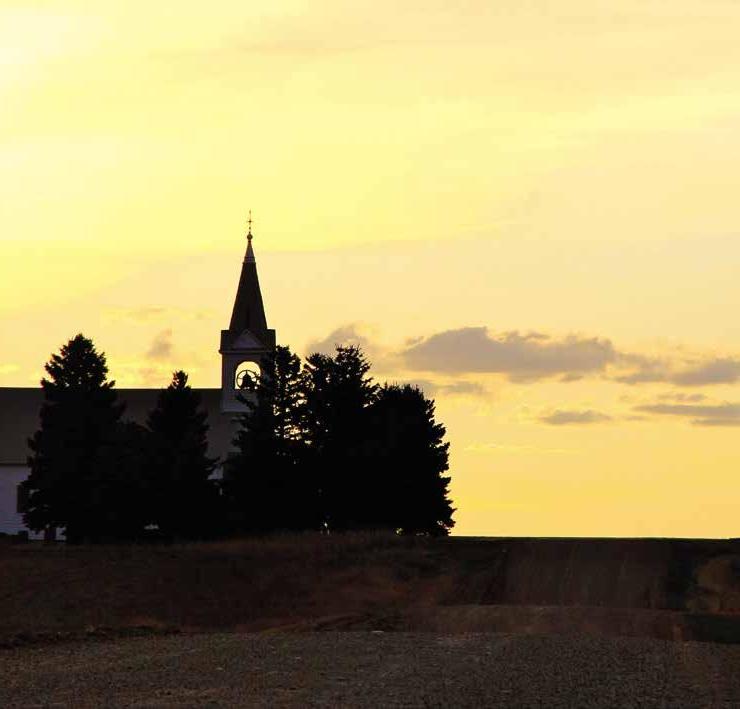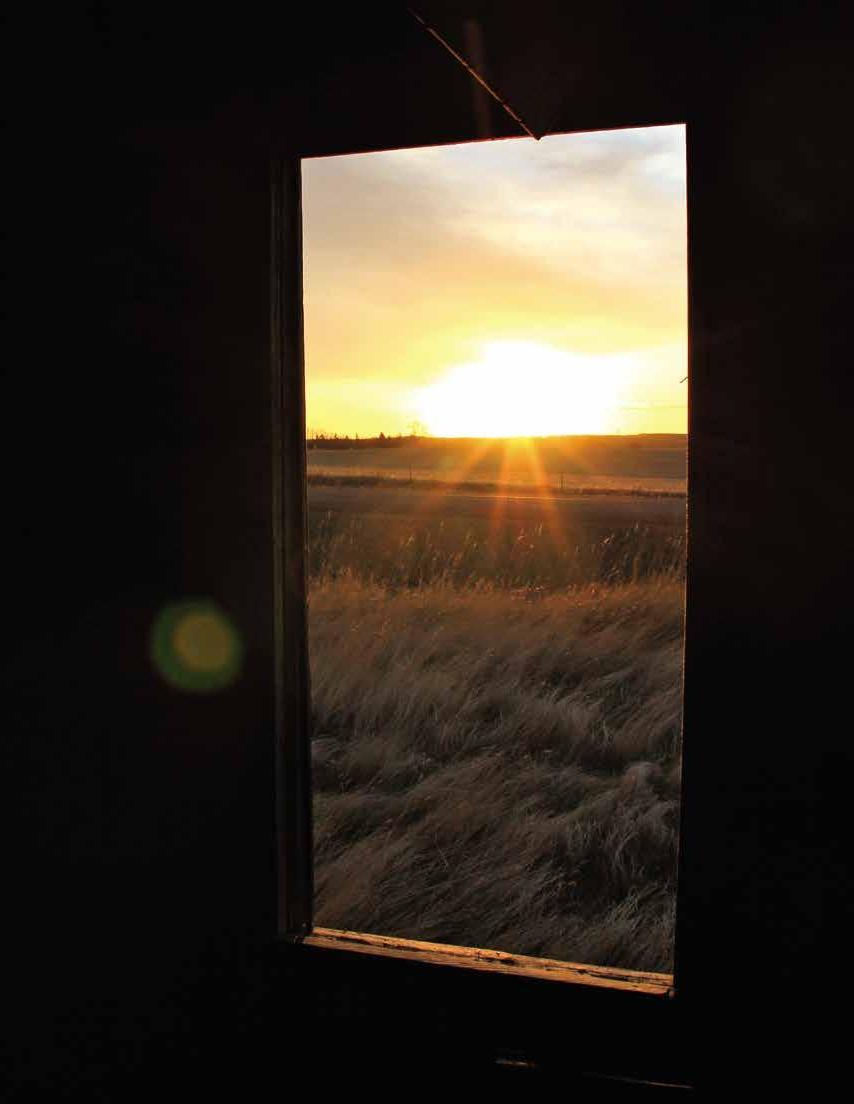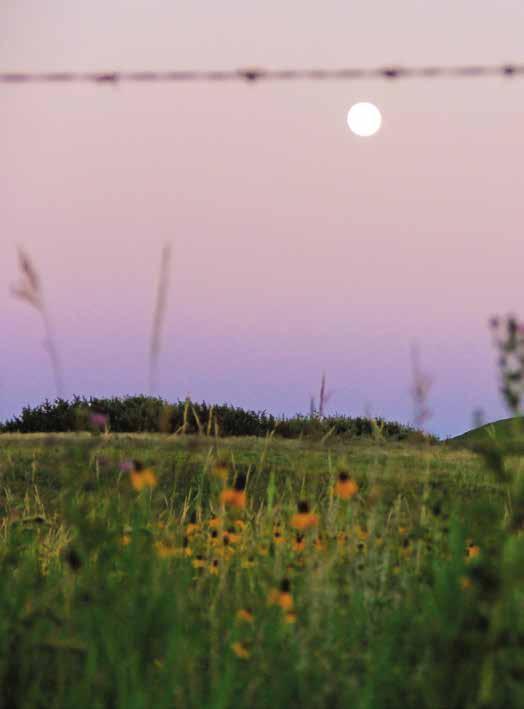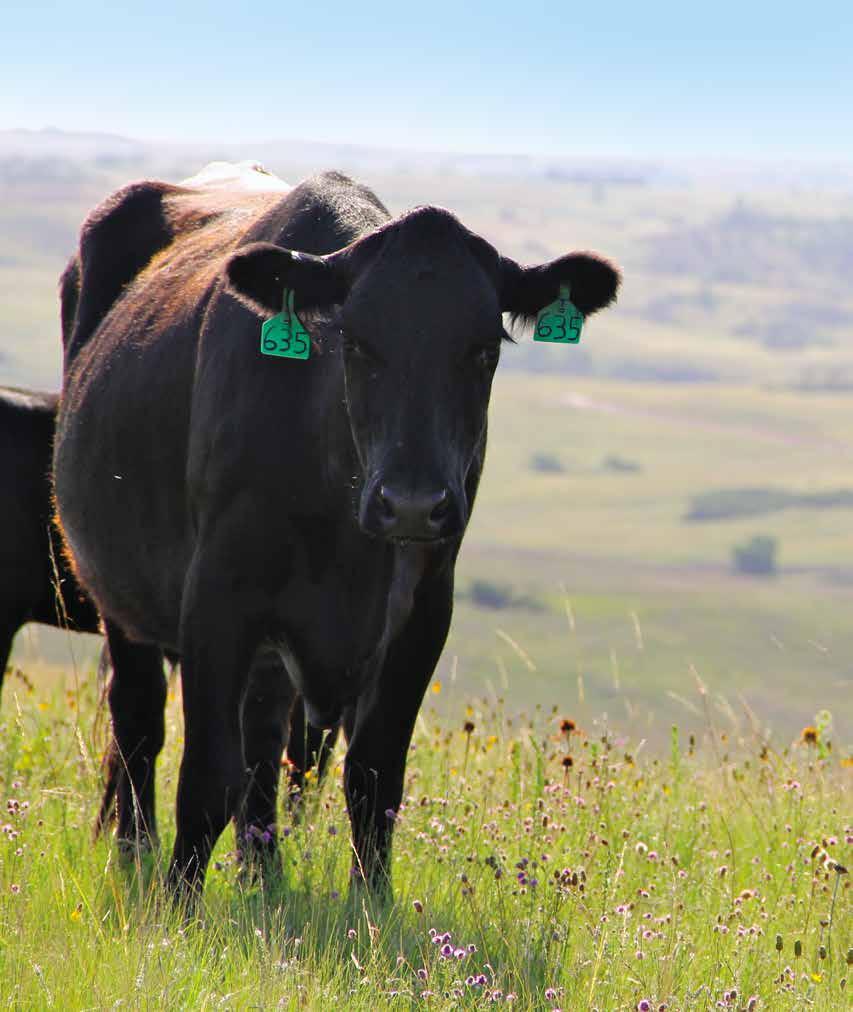
10 minute read
Carte Blanche
Photo by Jesse Veeder Scofield.
By Debra Marquart
Advertisement
As we were packing up the Chevy with my things for college, Father handed me a checkbook from the Stock Growers Bank. It looked odd and official in his hands—legal, even—and nothing like the buckets of milk or the hay bales or any of the other things of agricultural that I usually saw him carrying around. Inside the plastic navy blue cover, tucked into the crease, was a stack of bound checks with my name on them.
“Use these,” he said, “to buy what you need while you’re away.”
Over the years, sometimes at the end of harvest or when the livestock was loaded up and taken off for sale, my father would make vague references to the money he was setting aside for us kids— let’s say, equal to the price of one calf for each of us—in payment for helping him and Mother with the milking and the work in the fields that year.
I don’t think any of us ever pinned him down about the details. Somehow, in our family (and I’m not sure how this was accomplished, because I don’t recall ever being yelled at about it) we just understood that to talk about money was low and rude. Also, to ask too many questions was low and rude. So it only followed that to ask too many questions about money was not only low and rude but also impertinent.
But, here was the checkbook in my hands now, evidence that the socking away had occurred.
Prior to this, I’d lived a cash-only life. I didn’t need much. I had a little job waitressing at Maggie’s Café in high school to buy the luxuries. Then, as now, I spent most of whatever I made on three things—books, clothes, and music. Even at that moment when I held my first checkbook in my hands, I had no idea how it worked.
But once at college, I took to writing checks like a natural, like a real pro. I learned that there were more things in the world to want than I’d previously imagined: shoes in black, brown, and tan; sandals in low and high heels; dresses, sweaters, and skirts; raincoats, umbrellas, and hats. Makeup and jewelry. Books on philosophy and history. Albums for bands that weren’t even on the radio.
With my new college friends, other girls from small towns around North Dakota set loose now in the big city, I also discovered eating out. In Napoleon, my hometown, there was pretty much only Maggie’s Café and the pool hall downtown, where you could still get the best order of french-fries ever made for 25 cents. But in Bismarck, there were places like A & B Pizza and the Big Boy Drive-In. I don’t think we ever splurged on expensive restaurants, but we skipped out on the college food service enough to eat our way across town. We all gained the requisite Freshman 10 Pounds.
My monthly bank statements must have read like an ethnographic study of the odd habits and proclivities of this new creature my parents were discovering me to be, a female college freshman. It would have been better than satellite tracking or inserting a computer chip under my skin, because once I went paper, I went paper. I don’t think I ever learned how to get cash out of my checking account.
I mention the bank statement now only to point out two other amazing facts that I didn’t know at the time about checking accounts—that a bank statement was mailed out each month, and that it was being sent to my parents who, I presume, studied it carefully.
About eight months into this experiment, my dad called me up and said, “Well, we’re closing down the checking account.”
“Why?” I asked, incredulous. It seemed to be working so marvelously.
That’s when I learned about the bank statements that were coming to my parents along with the monthly pack of cancelled checks, those little numbered slips of paper that I had wildly signed, torn out along the perforations, and strewn across the counters of stores and restaurants in Bismarck.
“But I still have plenty of checks,” I told my father. And that’s when I learned another stunning thing—that money had to be put into the account to counterbalance the writing of the checks. I don’t recall anyone ever mentioning the part about making deposits, or maybe he told me about checks and balances, but it simply fell from my head like algebra and chemistry and calculus had.
Even before I understood all the intricacies of banking, even after, I marveled at the counter checks in the café and stores in my hometown. In the Red Owl and the Rexall Drug near the chewing gum and the cigarette lighters, in Maggie’s Café near the mints and the toothpicks in their cellophane wrappers, a tattered pack of counter checks from the Stock Growers Bank was always tucked in the crevice between the napkin holder and the cash register.
The counter checks were left blank of any information—convenience checks for people who may have forgotten their checkbooks at home. Not only the normal places on the check for the “date,” the “dollar,” and the “pay to the order of” were left blank. Not only the long line for the signature was left blank, and the spot marked “memo,” where you could write “rent” or “fishing gear” to remind yourself what you’d just spent money on. But also the upper left corner of the check where the account holder’s name and address usually was printed and the long bottom edge of the check where the account number was shown were all left blank. It seemed like carte blanche, courtesy of the Stock Growers Bank.
It appears naïve and quaint on the surface, but what keeps counter checks from being an embezzler’s dream is the safety net of the small town, the merchant’s knowledge of all of his customers, the families they belong to, and what their history has been. A small town is a claustrophobically finite world. Everybody’s watching; everybody knows. And a small town is not a place where you want to start bouncing checks, counter or otherwise. It’s like fouling your own nest, or, as my father used to say, “shitting too close to the house.”
About my own derelict checking account—later, I discovered that the banker, Parkas, would call my father when my checking account ran low. “Debbie is overdrawn again,” he’d say. Then my dad would run downtown and deposit a few hundred more dollars. Years later, my mother told me that they would sift through the checks I had written—$1.25 at Dairy Queen, $2.33 at Village Inn— and shake their heads. They were paying $5 for every overdraft.
I’m sure they were devastated by the waste of it, and I’m certain my father found it hard to fathom why I needed so much in the world in excess of the price of one calf sold to slaughter each year.
Everything I think and write about home these days makes me feel like crying, because so much of it is gone, pushed out of the way through the natural forces of time, erased through death.
When I remember the solemn gesture of my father handing me my first checkbook as I left home for college, never to return—although none of us knows that yet—when I think about him rushing down to the Stock Growers Bank to deposit two hundred more dollars to cover my checks for lipstick or panty hose, I have to get up and walk around a while. I have to unload the dishwasher or play with the dogs.
Because my father has been gone from the world for almost twenty years now, and I doubt I will ever find anyone who loves me as much as he did. And that world of home, that world of checks and balances that he believed in has changed so much, beyond anything he would have imagined.
When I drive through western North Dakota these days, I think of him. When I see the flare pits burning off natural gas around the oil wells, burning off natural resources into the already fragile atmosphere just because no one wants to slow down long enough to collect it, I think of him.
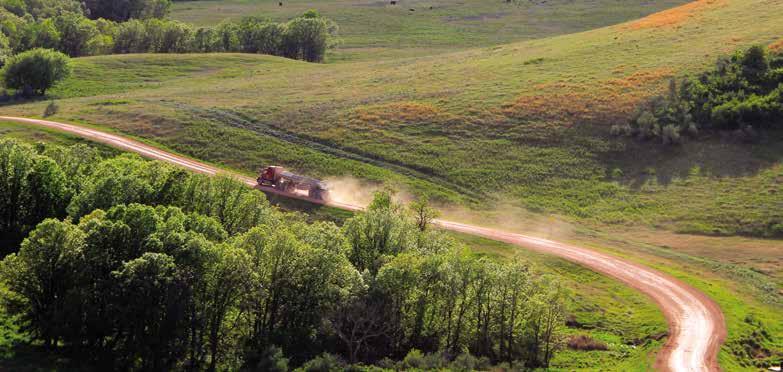
Photo by Jesse Veeder Scofield.
When I see the oil and water tankers navigating slippery country roads and read about the catastrophic accidents that result on the highways; when I hear of pipeline ruptures emptying thousands of barrels of crude into a farmer’s field; of trainloads of fuel exploding near a small North Dakota town; of fracking fluid and oil and saline water spills occurring almost daily in rural regions where people are dependent on well water, I think about how much this is all going to cost.
Because it’s a finite world. Everybody’s watching; everybody knows. And I wonder who is going to step forward to pay for this, to settle the bill when it comes due. And I think I have an idea about who that is going to be.
The world my father trained me to live in is not the world I live in now. So I must shed some of his training. To talk about money, about checks and balances, and who’s going to pay for all this is not low or rude. To ask a second question, or a third question, or even a fourth or fifth is not impertinent. Because we have so many questions that need asking.
That day, after my father called me at college to tell me he was closing down my checking account, he said he would wait a few weeks until the checks had all cleared. After that, for the next few days, I went on a spending frenzy. I bought toothpaste and toilet paper; rugs and comforters and bed sheets; pajamas and bathrobes; nail polish, shampoo and face moisturizer. I bought chocolate bars and camera film and underwear. It felt like the end. I tried to buy everything that I thought I was going to need for the rest of my life. But it wasn’t the end. It was just the end of carte blanche, the beginning of resource management, of life stewardship, of understanding limits, of maturity.
And I’m not going to beat myself up about not understanding how money worked. Just recently, a friend of mine told me about how her teenage daughter had asked her for money, and when my friend said, “No, honey, I don’t have any money,” her daughter said, “Yes you do, mom. All you have to do is put your card in the machine and it will give you money.”
So maybe it’s just something developmental that we all must go through, like that period before frontal lobe development when we feel as if nothing can touch or hurt us, and we think the whole world is just a space left blank for us to write our wishes upon. And it would never even occur to us that someone is running around in the background cleaning up our messes, that someone we love fiercely is paying the highest prices just to make good on the things to which we have foolishly committed our signatures.
Debra Marquart is a professor of English at Iowa State University. She teaches in the MFA Program in Creative Writing & Environment at Iowa State University. Marquart’s work has received numerous awards and commendations including a Pushcart Prize, and a 2008 NEA Creative Writing Prose Fellowship among others. Marquart’s memoir, The Horizontal World: Growing up Wild in the Middle of Nowhere, received the “Elle Lettres” award from Elle Magazine, a New York Times Editors’ Choice commendation, and the 2007 PEN USA Creative Nonfiction Award. Marquart is also the author of two poetry collections— Everything’s a Verb and From Sweetness—and a collection of interrelated short stories, The Hunger Bone: Rock & Roll Stories, which draws on her experiences as a female road musician. Marquart’s latest book, a poetry collection, Small Buried Things, is forthcoming from New Rivers Press in 2015.






